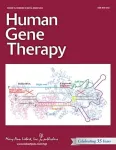(Press-News.org) HOUSTON ― The University of Texas MD Anderson Cancer Center today was awarded nine grants totaling over $21.4 million from the Cancer Prevention and Research Institute of Texas (CPRIT) in support of two new core facilities, faculty recruitment and groundbreaking cancer research across all areas of the institution.
“We are enormously appreciative of CPRIT’s support of impactful cancer research initiatives at MD Anderson,” said Peter WT Pisters, M.D., president of MD Anderson. “These new core facilities will help advance important areas of research in spatial biology and decision science, while the additional grants will advance groundbreaking work on the microbiome, cancer interception and novel therapies. This work by our world-class scientists and clinicians reflects their unwavering commitment to our goal of ending cancer.”
Two awards MD Anderson received today, totaling over $5.9 million, support the development of two core facilities at MD Anderson. The first ever Advanced Spatial Genomics Core facility, led by Nicholas Navin, Ph.D., chair of Systems Biology, will focus on the new field of spatial genomics, which allows researchers to build an atlas of the human body by connecting images of cells and their tissue structures with genomic data while preserving their spatial arrangement. This core will connect the fields of pathology and cell biology with genomics, providing invaluable resources with the potential to dramatically improve the diagnosis and treatment of cancer and other diseases.
The Texas Decision Science Core facility, co-led by Robert Volk, Ph.D., and Lisa Lowenstein, Ph.D., professors of Health Services Research, is an innovative, collaborative, statewide resource for cancer researchers that combines the expertise and experience of MD Anderson’s Decision Support Lab with the network of Texas institutions participating in the UTHealth Houston Clinical Translation Hub of the UTHealth Houston Center for Clinical & Translational Sciences. The core will provide access to decision science expertise and the production of high-quality decision support tools to aid consumers, patients and clinicians in making decisions based on personal values and preferences.
Since its inception, CPRIT has awarded nearly $3.6 billion in grants for cancer research. MD Anderson investigators have received $645 million all told, approximately 18% of the total awards. Programs supported by CPRIT funding have brought more than 323 distinguished cancer researchers to Texas, advanced the knowledge base for cancer treatment throughout the state and provided more than 9 million cancer prevention and early detection services reaching all 254 counties in Texas.
CPRIT awards to MD Anderson include:
Individual Investigator Awards:
Dietary intervention to modulate the microbiome and immune response (Jennifer McQuade, M.D., Melanoma Medical Oncology) - $1,074,727
Precision lung cancer interception by targeting high-risk lung nodules (Jianjun Zhang, M.D., Ph.D., Thoracic-Head and Neck Medical Oncology) - $1,098,945
Core Facility Awards:
Advanced Spatial Genomics Core facility (Nicholas Navin, Ph.D., Systems Biology) - $2,999,993
The Texas Decision Science Core facility: A CPRIT population science core (Robert Volk, Ph.D., Health Services Research) – $2,995,778
High-Impact/High-Risk Research Awards:
Engineering in vivo chimeric antigen receptor (CAR) macrophages for diffuse midline glioma (Wen Jiang, M.D., Ph.D., Radiation Oncology) - $250,000
Multi-investigator Awards:
Innovative cell therapy approaches for hematological and solid malignancies (Sattva Neelapu, M.D., Lymphoma/Myeloma) - $4,500,000
Novel therapies for osteosarcoma (Richard Gorlick, M.D., Pediatrics) - $4,498,684
CPRIT Scholar Recruitment Awards:
Recruitment of two first-time, tenure-track faculty – $4,000,000
Read this press release in the MD Anderson Newsroom.
- 30 -
END
The U.S. National Science Foundation (NSF) has awarded $26 million to establish a new Gen-4 Engineering Research Center (ERC) named Environmentally Applied Refrigerant Technology Hub (EARTH) to create a sustainable and circular refrigerant economy.
The University of Kansas is the lead institution, joined by partners at Lehigh University, University of Notre Dame, University of Maryland, University of Hawai'i and University of South Dakota. David Vicic, the Howard S. Bunn Distinguished Professor of Chemistry, will lead Lehigh’s team. Mark Shiflett, University of Kansas Foundation Distinguished Professor in the Department of Chemical & Petroleum Engineering, will be the ERC EARTH ...
Brooke Flammang, a biologist at New Jersey Institute of Technology (NJIT), has been awarded nearly $680,000 from the National Oceanic and Atmospheric Administration (NOAA) as part of a growing nationwide effort to save the critically endangered North Atlantic right whale (Eubalaena glacialis).
NOAA Fisheries recently unveiled a more than $9 million initiative funded by the Inflation Reduction Act to support a coalition of universities, nonprofits and scientific organizations engaged in the recovery of the species, which has seen its numbers dwindle to roughly 360 individuals ...
LAWRENCE — The National Science Foundation (NSF) has awarded the University of Kansas $26 million to establish a new Gen-4 Engineering Research Center (ERC) —Environmentally Applied Refrigerant Technology Hub (EARTH) — that will create a sustainable and circular refrigerant economy.
NSF’s Engineering Research Centers bring universities and businesses together to strengthen the competitive position of American industry in the global marketplace.
“NSF's Engineering Research Centers ask big questions in order to catalyze ...
ALBUQUERQUE, N.M. — The Sandia Science & Technology Park is being credited with playing a critical role in New Mexico’s economy over the last 25 years, creating high-paying jobs and bringing state-of-the-art technologies to the marketplace.
A study by the Mid-Region Council of Governments shows that over that time, businesses located within the technology park paid out $7.7 billion in wages in the five-county region of Bernalillo, Sandoval, Valencia, Torrance and southern Santa Fe counties. It also shows the park generated ...
HUNTINGTON, W.Va. – Two Marshall University innovators, Brad Profitt, DC, DPT, DScPT, and M’Hamed Turki, M.D., have been selected to participate in the National Institutes of Health (NIH) funded IDeA Regional Entrepreneurship Development (I-RED) Program, facilitated by the XLerator Network.
The NIH’s competitive I-RED program supports the creation of educational products to promote entrepreneurship in academic institutions. XLerator Health, a health care accelerator based in Louisville, Kentucky, assists startup founders like Profitt and Turki in commercializing their businesses and attracting funding.
Profitt is a co-founder ...
New Rochelle, NY, August 21, 2024—Researchers from the University of Pennsylvania, Perelman School of Medicine, Gene Therapy Program, and Moderna, have shown that repeated administration of lipid nanoparticle-encapsulated mRNA therapy significantly extended survival and reduced serum leucine levels in a mouse model of maple syrup urine disease (MSUD). Click here to read the article now.
The researchers, led by James Wilson, M.D., Ph.D., from the University of Pennsylvania, Perelman School of Medicine, evaluated a lipid nanoparticle-based treatment approach to address all possible genetic mutations that can cause MSUD.
“Repeated intravenous ...
A U.S. Army Medical Materiel Development Activity commercial partner received Emergency Use Authorization from the U.S. Food and Drug Administration for the Department of Defense to use octaplasLG Powder—a potentially lifesaving treatment option for blood replacement therapies in certain operational circumstances. Notice of the EUA for this product was received by the company, Octapharma USA, on Aug. 8, 2024.
USAMMDA’s Warfighter Protection and Acute Care Project Management Office, which has a Cooperative Research and Development Agreement with Octapharma USA, manages research and development efforts for several ...
Pennington Biomedical Research Center’s Dr. Candida Rebello wants to know more about the intersection of blood sugar levels and a diet rich in soy. This intersection is the primary focus of her new study, “Lifestyle Intervention for Improving Metabolic and Motivational Outcomes,” or MOTIVATE, which explores how specific diets can impact blood sugar, and potentially improve mood and energy levels.
When soy seeds are cut, they produce the anti-microbial compound known as glyceollin, which has been shown to improve insulin sensitivity and cognition. The cut soy seeds will be milled into flour and will be included in the diets of some of the participants. The MOTIVATE ...
When UC San Francisco research showed that routinely treating children in Sub-Saharan Africa with a common antibiotic could reduce deaths in children under five, the World Health Organization (WHO) moved quickly to recommend the treatment – but only for infants between 1 and 11 months old.
Now, UCSF researchers have shown that treating babies is not enough. The antibiotic must be given to all children up to 5 years old to realize its full benefit, which is considerable: It lowers child mortality ...
RESEARCH SUMMARY
Study Title: Belzutifan Versus Everolimus for Advanced Renal-Cell Carcinoma
Publication: New England Journal of Medicine, August 22, 2024
Dana-Farber Cancer Institute authors: Toni K. Choueiri, MD
Summary: The LITESPARK-005 phase 3 clinical enrolled 746 patients with metastatic clear cell renal cell carcinoma (ccRCC) who had progressed after treatment with both an immune checkpoint inhibitor (ICI) and an anti-angiogenic therapy. Patients were randomized to receive treatment with either belzutifan, a HIF-2α inhibitor, or everolimus. Overabundant HIF-2α is associated with increased cancer-driving activity. At the second interim analysis of this study, ...




